It often sounds as though Richard Strauss makes the ascent of his Alpine Symphony in too many layers of clothes. Hopes were that Vladimir Jurowski and the London Philharmonic Orchestra would give us a characteristically sinewy, more lightly-clad mountaineer. What we got was something different: a perfect blending of rich textures, an objectivity that left humans more or less out of the natural landcapes, and an often swift expedition that gave space to climaxes.
This was the third performance I've heard in a row which shed minutes from the average length of the work in question without seeming rushed – the first being Mark Wigglesworth's dazzling 55-minute interpretation of Brahms's A German Requiem on the previous evening, the second the Rachmaninov Fourth Piano Concerto in this concert's first half. It's the most evasive and elliptical of the composer's works for piano and orchestra, and would seem to be a special preoccupation of Jurowski; he conducted both the longer original and standard revised versions in last season's Rachmaninov series.
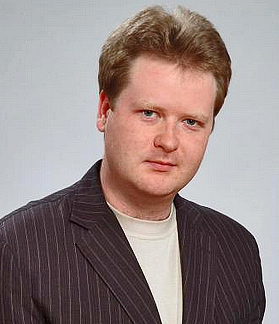 You can see why he wanted to do it again, this time with poised master pianist Alexey Zuev (pictured right). This was what the concerto should always be, something I've only previously heard Michelangeli in his famous recording with the Philharmonia hint at: more a Fantasia concertante with the soloist confident and clear-headed enough to let the orchestra, and especially woodwind and first horn, forefront many of the main thematic events. There was miraculous sleight of hand here from all players, so that you never questioned the flow of the tricky first movement, and the sometimes threadbare-sounding Largo became more an Andante, the pianist seeming to think up improvisations on the three-note orchestral figure (minor-key "Three Blind Mice" or "Two Lovely Black Eyes" according to taste).
You can see why he wanted to do it again, this time with poised master pianist Alexey Zuev (pictured right). This was what the concerto should always be, something I've only previously heard Michelangeli in his famous recording with the Philharmonia hint at: more a Fantasia concertante with the soloist confident and clear-headed enough to let the orchestra, and especially woodwind and first horn, forefront many of the main thematic events. There was miraculous sleight of hand here from all players, so that you never questioned the flow of the tricky first movement, and the sometimes threadbare-sounding Largo became more an Andante, the pianist seeming to think up improvisations on the three-note orchestral figure (minor-key "Three Blind Mice" or "Two Lovely Black Eyes" according to taste).
Jurowski's perfect tempo made it work for the first time in my experience. As for the finale, it remains the most brilliant and breathtaking of the four concertos, piano more to the fore but Zuev still keeping it light. Almost too easy, in fact, in the final two build-ups – I've heard more dangerous cliffhangers – but in balance with the orchestra throughout. This was one of those true concerto partnerships, on average one in every hundred performances, and I hope we get much more from Zuev and Jurowski: they'd be perfect in the equally unpredictable Martinů concertos or Prokofiev's Fifth, originally titled "Music for Piano and Orchestra". And with this performance Jurowski and the LPO made a Rachmaninov "problem piece" work as well for them as their unique interpretation of the equally tricky Third Symphony last season (now on CD).
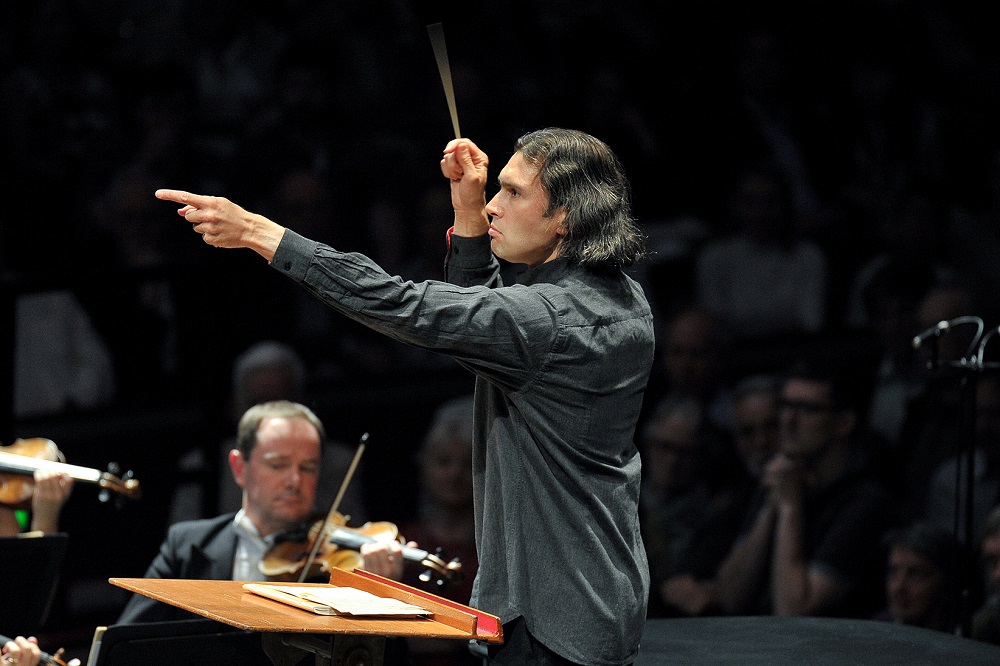 This Alpine Symphony was equally sure of purpose. If Jurowski's idea of it (the conductor pictured left by Chris Christodoulou) wasn't always mine – I live for the moments of great tenderness in the work, which perhaps need a Dresden or Vienna sound and certainly weren't dwelt upon here – he was futuristic as usual in his thinking. This was an Alpine Symphony carved from one block of marble, unfolded as one great symphonic arch – the Straussian equivalent, with length to boot, of Sibelius's Seventh with its three mountain peaks. Here there's just one, and the glory of the summit was also the peak of the performance, strings swooning and leaping with suitable portamenti against a well-balanced background.
This Alpine Symphony was equally sure of purpose. If Jurowski's idea of it (the conductor pictured left by Chris Christodoulou) wasn't always mine – I live for the moments of great tenderness in the work, which perhaps need a Dresden or Vienna sound and certainly weren't dwelt upon here – he was futuristic as usual in his thinking. This was an Alpine Symphony carved from one block of marble, unfolded as one great symphonic arch – the Straussian equivalent, with length to boot, of Sibelius's Seventh with its three mountain peaks. Here there's just one, and the glory of the summit was also the peak of the performance, strings swooning and leaping with suitable portamenti against a well-balanced background.
Then it was all fierce movement forward to the point at which the weather begins to turn against the mountaineers. A swift "Elegy" counterbalanced an equally speedy mountain-pasture sequence the other side of the summit (not good that the 21 sections weren't laid out in the programme, but then programmatic detail wasn't Jurowski's aim). The wind and thunder machines (metal sheets) of the storm delighted the many children in the audience, while the clarity of thematic recap made the sequence seem less extended than usual (to the charge that Strauss makes it disproportionate, storms can last many hours in the Alps, as I know from sleeping in a refuge and experiencing one that went on all night).
Perhaps we could have done with a little more generosity in sunset and epilogue – the Festival Hall organ well integrated here – but the final darkness was as impressive as the opening, trombones and tuba (and here trumpets in low register) as finely blended as everything else in this austere, impressive interpretation.

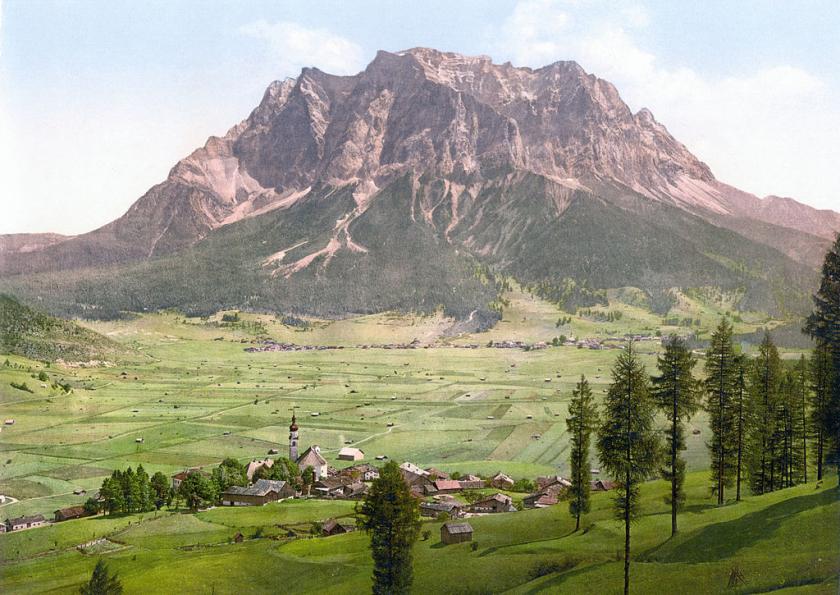










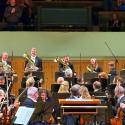
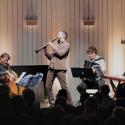
Add comment